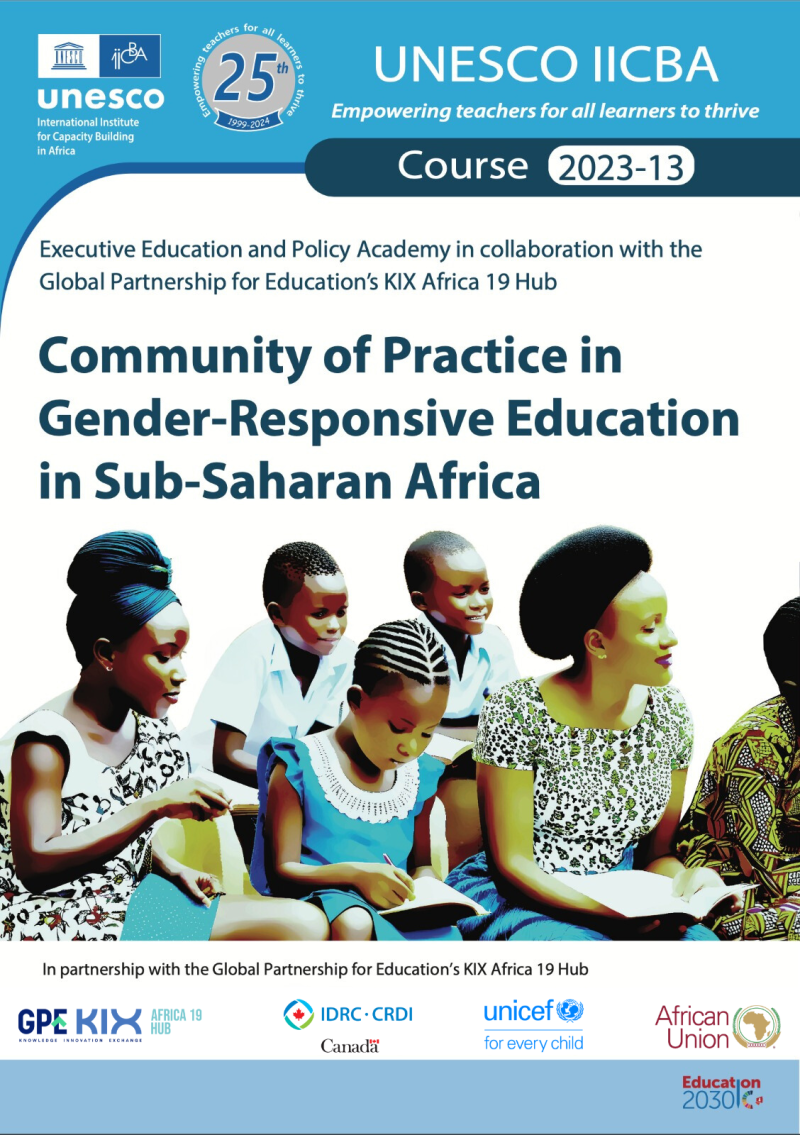
Evidence shows that girls who are educated earn higher wages, have better health outcomes and healthier families, and contribute more to the development of their societies. However, in many countries in sub-Saharan Africa, girls are dropping out of school and marrying early, falling behind in core subjects, and not completing secondary school and college. Gender inequalities in education are reinforced by education systems, education planning, funding choices, curriculum, textbooks and teaching materials, and the limitedness of data and evidence.
This community of practice will provide a platform for policy actors interested in gender equity to share and learn about gender-responsive good policies and practices across sub-Saharan Africa. Through a series of workshops and an applied learning task, participants will enhance their ability to diagnose and address gender inequities and barriers in their own education systems.
This course consists of six initial virtual workshops in November and December 2023, an optional and practical learning task, and a reflective plenary session. Workshop dates are November 21, 23, 28, 30; December 5 and 7.
Participants who complete the three modules, including the practical learning task, will receive certificates of course completion. Participants will also be invited to stay connected and continue their learning through a community of practice at the conclusion of this short course.
